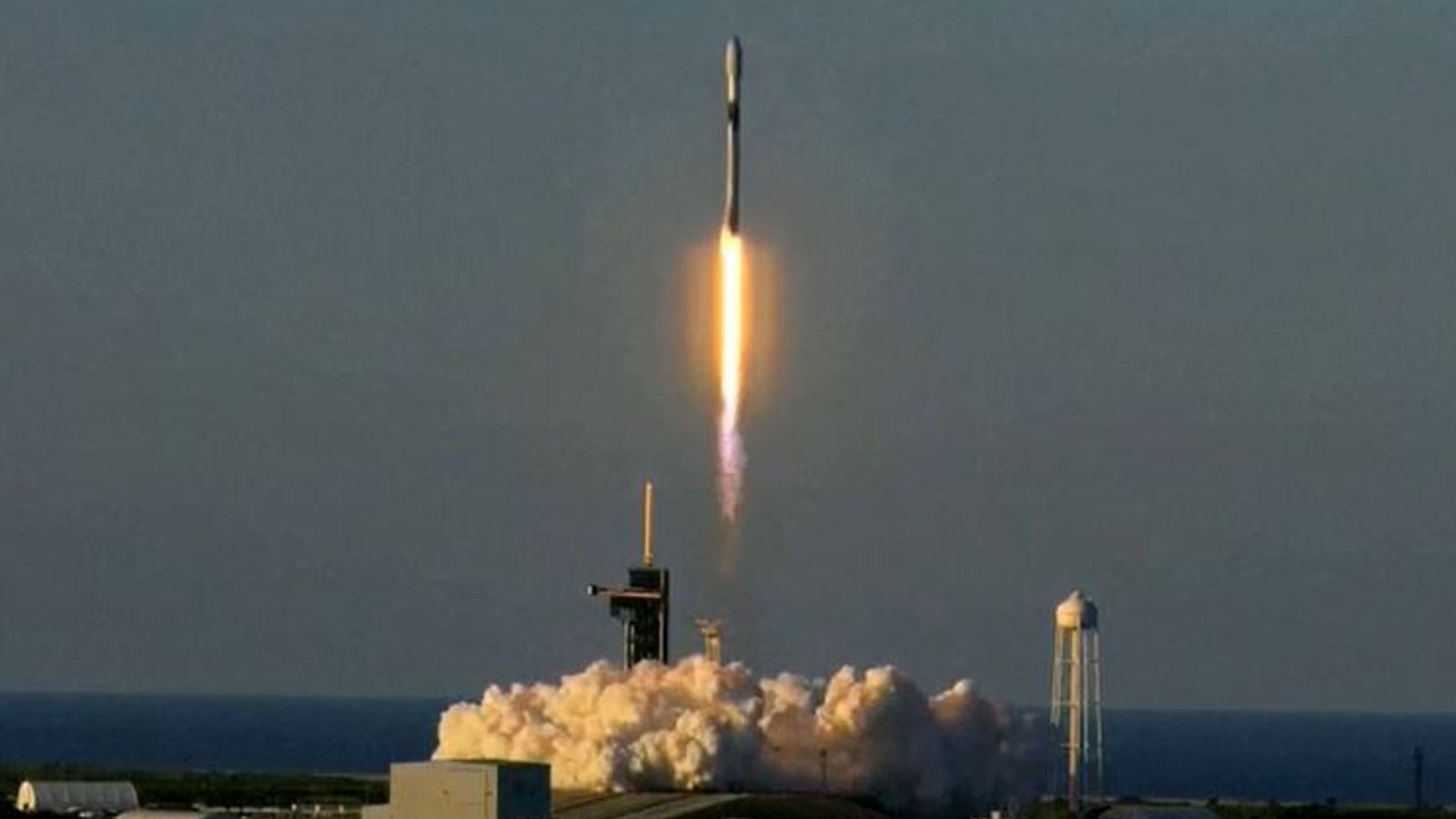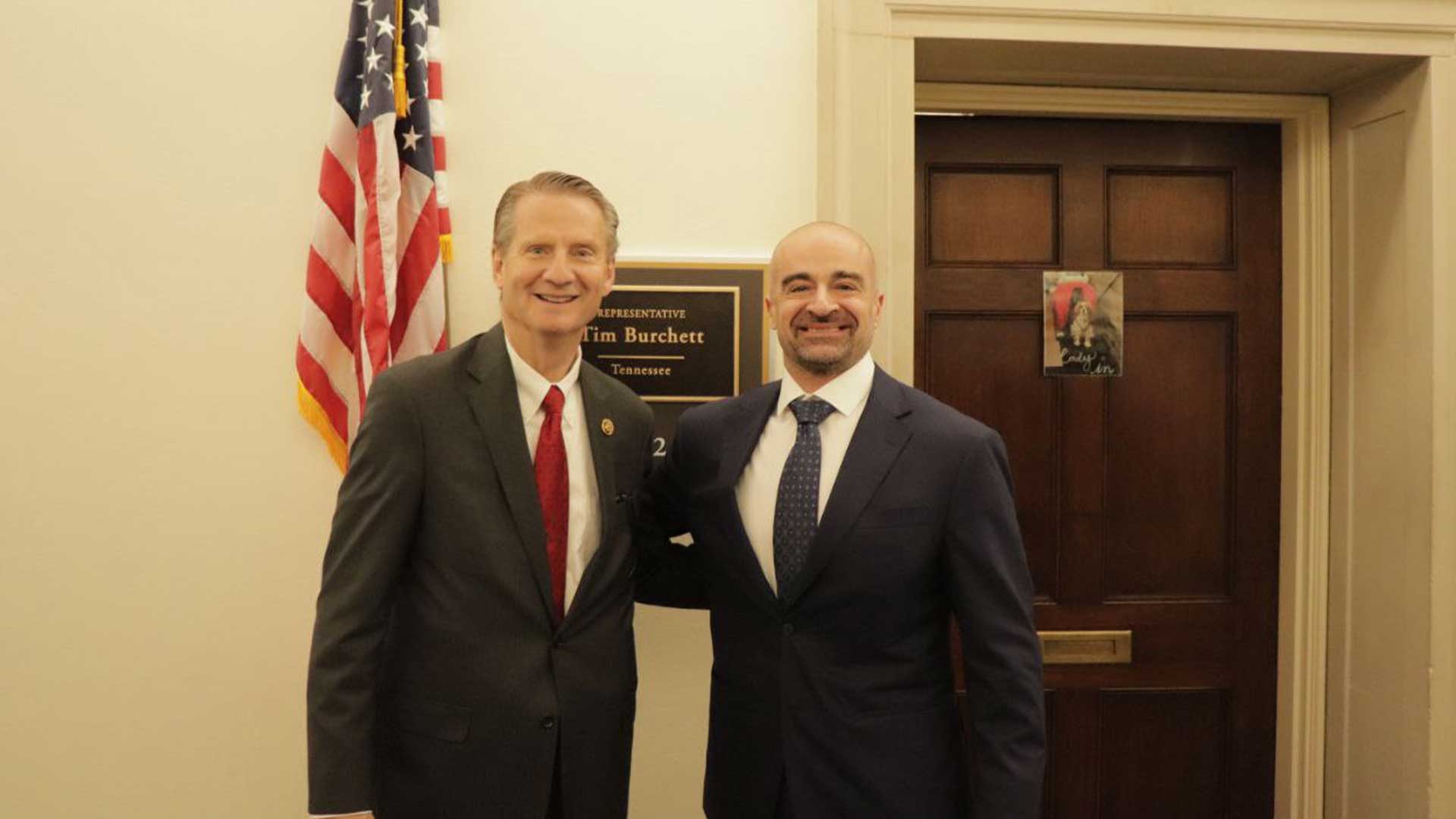SpaceX: Space storm destroys 40 of Elon Musk's Starlink satellites
World 04:51 PM - 2022-02-13
Photo Credit: SkyNews
Elon Musk's company said that 40 of its 49 satellites were going to fall back to Earth - though they are designed to burn up on re-entry - after a space storm "significantly impacted" them.
They were part of a planned satellite constellation that is intended to eventually provide constant internet coverage for most of the world.
What is Starlink?
The Starlink project is intended to provide broadband-speed internet access across the planet and generate cash for Musk's other space ambitions.
Musk said: "We think this is a key stepping stone on the way towards establishing a self-sustaining city on Mars and a base on the moon."
The company has already launched 2,000 satellites and has permission from the US authorities to send up 12,000 in total.
But critics fear that the fleet of satellites will ruin the night sky for astronomers attempting to observe distant parts of the universe.
SpaceX says it is darkening its satellites with a software upgrade so they will fly with their "knife edge" to the sun to minimise reflections.
What happened?
The storm, which was caused by solar activity, made the Earth's atmosphere warm and expand.
This is not in itself unusual, and the impact of a geomagnetic storm on de-orbiting spacecraft has also been cited as a concern by NASA in its plan to crash the International Space Station into a "spacecraft cemetery" when it is finally retired.
The denser atmosphere at the initial orbital altitude for the satellites caused atmospheric drag to increase up to 50% higher than SpaceX had seen in previous launches, the company said.
Ultimately this means that "up to 40 of the satellites will re-enter or already have re-entered the Earth's atmosphere", it said.
The satellites posed no risk to Earth, the company added.
"The de-orbiting satellites pose zero collision risk with other satellites and by design demise upon atmospheric re-entry - meaning no orbital debris is created and no satellite parts hit the ground."
The company said that it deployed its satellites into lower orbits "so that in the very rare case any satellite does not pass initial system checkouts it will quickly be de-orbited by atmospheric drag".
"While the low deployment altitude requires more capable satellites at a considerable cost to us, it’s the right thing to do to maintain a sustainable space environment," it added.
PUKmedia/skyNews
More news
-
Iraqi President: Baghdad-Erbil Agreements Must be Activated
10:41 AM - 2024-05-12 -
DPM Talabani Appreciates Spanish Ambassador’s Efforts in Improving Both Countries' Relations
06:32 PM - 2024-05-08 -
Two Emirs, 6 Terrorists Arrested by Kurdish Security Forces
09:40 PM - 2024-05-06 -
DPM Talabani: Kurdistan Has a Skilled Workforce
07:00 PM - 2024-05-06
see more
PUK President: We Believe in Genuine Partnership in Running the Country
08:48 PM - 2024-05-11
Washington's Newlines Institute Interviews PUK President
05:40 PM - 2024-05-09
PUK President: We Maintain Our Relations For National Interests
03:42 PM - 2024-05-09
PUK President: PUK is Committed to Resolving Issues
06:48 PM - 2024-05-08
Most read
-
Iraqi President: Food Security is At Stake
Kurdistan 11:37 AM - 2024-05-12 -
Iraqi President: Baghdad-Erbil Agreements Must be Activated
Kurdistan 10:41 AM - 2024-05-12

.jpg)




 Application
Application


